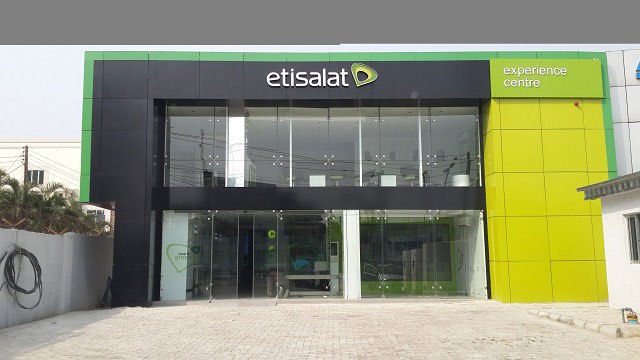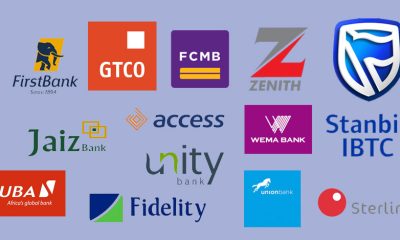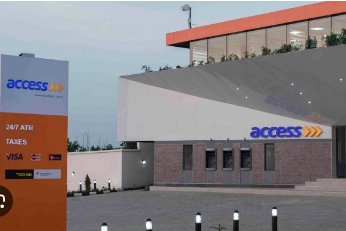A leading stockbroking firm in Lagos provides an insight into the Etisalat loan imbroglio and how a default will affect the 13 Nigerian banks especially GTB and Fidelity banks
Etisalat Group issued a press release yesterday saying that Nigerian associate, Emerging Markets Telecommunication Services received a security enforcement notice on June 9, requesting for EMTS to transfer its Etisalat Nigeria stake to United Capital Trustees Limited, the legal representative of the consortium of exposed banks.
Etisalat Group owns 45% ordinary shares and 25% preference shares in Etisalat Nigeria.
Etisalat Nigeria, Nigeria’s fourth largest telecoms operator with over 21 million subscribers, is indebted to 13 Nigerian banks to the tune of US$1.2bn. The facility was availed Etisalat Nigeria in 2013 and was used to re finance an existing US$650m loan and fund the upgrade of its network.
Etisalat Nigeria began to experience cash flow problems following the steep depreciation of the naira and the impact on its foreign currency denominated exposure. The telecoms provider also has a few inputs denominated in dollars resulting in bloated expenses.
There have been talks with the lenders where various options have been considered. While Etisalat Nigeria was requesting for another loan restructuring (we understand that the loan had been previously restructured), the banks were requesting that Etisalat Nigeria convert an existing shareholder loan (quantum undisclosed but larger than the total exposure to the banks) to equity and inject more equity into the business in order to reduce the company’s leverage before another restructuring can be done.
From discussions with managements of the exposed banks, it was understood the exposure is over 90% collaterised and, for most of them, the exposure as at Q1 2017 was still classified as performing.
Accordingly, no charge had been taken on the loan as at the last reporting date.
How the lending consortium will proceed with the companys management is still unknown.
There are however several options available to the banks in our view: i) replace management; ii) leave current management in place while ensuring better oversight; and iii) the last option we see, is for the consortium to sell the Etisalat Nigeria stake through either a third party sale or management buyout.
Whichever option the banks decide to go with, the banks are expected do all it takes to ensure the company remains a going concern. Even in the event of a possible liquidation (which appears very much unlikely), the banks will still recover a reasonable percentage of their exposure, given their senior debt holdings.
A major stakeholder in all of these discussions is the Nigerian Communications Commission (NCC).
ALSO SEE: GTBank, Access, others get 45% stake in Etisalat
According to the Nigerian Communications Act (NCA), Etisalat’s operating licence cannot be transferred to a new owner without an approval from the NCC. Based on media reports so far, it appears the regulator would not want a takeover by the banks given the possibility of a major disruption if this happens.
The discussions may drag for a while before any action can be taken by the banks and in the process, there may be a need for the banks to take a haircut, albeit marginally.
Impact on COR if 50% of the exposure is lost
Considering the availability of adequate collateral and the current viability of the business, there is no possibility where 100% of the exposure will be lost.
An examination of the Cost of Risk (COR) to each bank if 50% of the exposure of each bank is lost shows an increase in the COR of the banks by about 0.6% to 1.4% with Guaranty Trust Bank showing the highest increase in COR (based on available data).
Looking at the impact on estimated profits for 2017, Fidelity Bank presents the worst case. 49% of its pre-tax Profits will be lost if 50% of its exposure is lost.
We note that the total Etisalat Nigeria exposure makes up only 3% of gross loans of the 10 banks we cover. That said, we do not consider even a 100% loan loss a major disaster for the banks.

 Entertainment5 days ago
Entertainment5 days ago
 Health1 week ago
Health1 week ago
 Health4 days ago
Health4 days ago
 Football1 week ago
Football1 week ago
 Football1 week ago
Football1 week ago
 Crime4 days ago
Crime4 days ago
 Education6 days ago
Education6 days ago
 Crime1 week ago
Crime1 week ago













